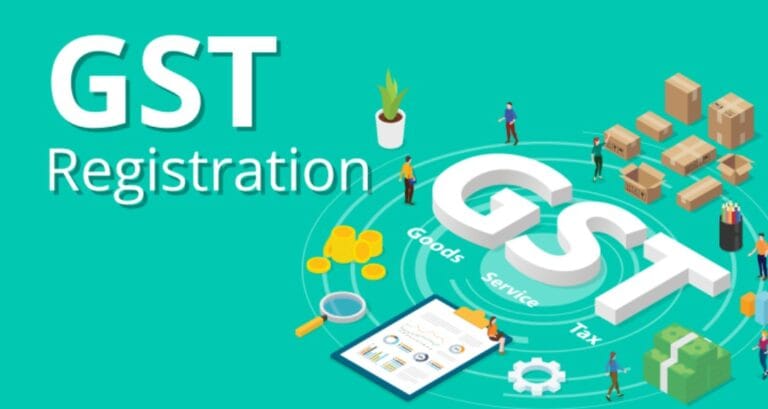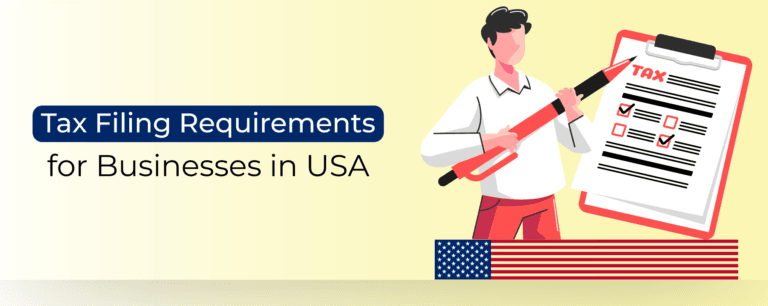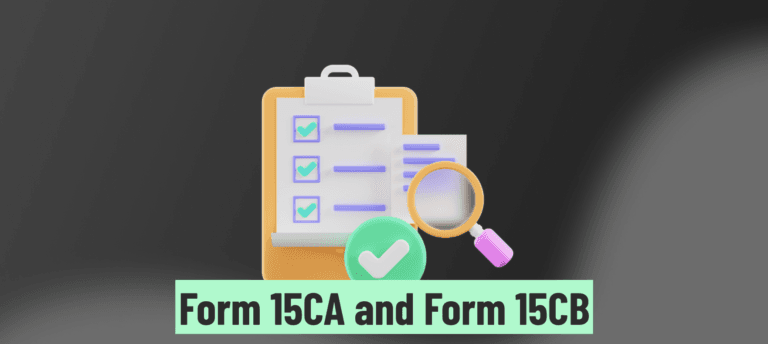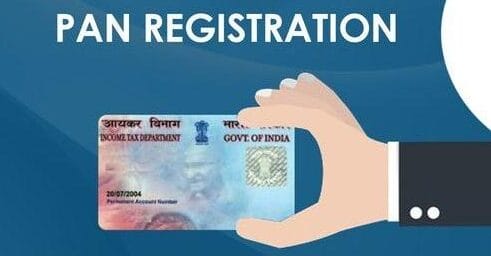The Goods and Services Tax (GST) is a comprehensive, multi-stage, destination-based tax that is levied on every value addition. It has subsumed many indirect taxes that were previously levied by the central and state governments, creating a unified tax structure across India.
Key Features of GST
- Comprehensive Tax: GST has replaced a multitude of indirect taxes such as VAT, service tax, central excise duty, and more.
- Multi-Stage Tax: GST is levied at every step of the production process but is refunded to all parties in the various stages of production other than the final consumer.
- Destination-Based Tax: The tax is collected from the point of consumption rather than the point of origin, meaning the tax revenue goes to the state where the goods or services are consumed.
- Input Tax Credit: Businesses can claim credit for the taxes paid on inputs, which helps in reducing the tax burden.
Types of GST
- Central Goods and Services Tax (CGST): Levied by the central government on intra-state supplies of goods and services.
- State Goods and Services Tax (SGST): Levied by the state government on intra-state supplies of goods and services.
- Integrated Goods and Services Tax (IGST): Levied on inter-state supplies of goods and services and is collected by the central government but distributed between the center and the states.
- Union Territory Goods and Services Tax (UTGST): Levied on intra-UT supplies of goods and services in union territories.
GST Registration Requirement
- Businesses with an annual turnover exceeding Rs. 40 lakhs (Rs. 20 lakhs for special category states).
- Individuals making inter-state taxable supply.
- Casual taxable persons making taxable supply.
- Non-resident taxable persons making taxable supply.
- Agents of a supplier.
- Those paying tax under the reverse charge mechanism.
- Input service distributors.
- E-commerce operators.
Documents Required for GST Registration
- PAN Card of the business or applicant.
- Proof of business registration or incorporation certificate.
- Identity and address proof of promoters/directors with photographs.
- Address proof of the place of business.
- Bank account statement/cancelled cheque.
- Digital signature.
- Letter of authorization/Board resolution for authorized signatory.
Process of GST Registration
- Application Submission: Submit the application form (GST REG-01) online through the GST portal.
- Verification: The application is verified by the GST officer.
- Approval: Upon successful verification, a GSTIN (GST Identification Number) is issued.
- Issuance of Certificate: The GST registration certificate is issued and can be downloaded from the GST portal.
GST Returns
Registered businesses must file periodic GST returns, which include details of sales, purchases, input tax credit, and the tax payable. The key returns are:
- GSTR-1: Monthly return for outward supplies.
- GSTR-2A: Auto-drafted details of inward supplies.
- GSTR-3B: Monthly summary return.
- GSTR-9: Annual return.
GST Payment
GST payments can be made online through net banking, debit/credit cards, NEFT/RTGS, or through a challan at designated banks.
GST Compliance
- Invoice Format: Issuing invoices in the prescribed format.
- Maintenance of Records: Proper maintenance of books of accounts and records.
- Timely Filing: Timely filing of GST returns to avoid penalties.
- Input Tax Credit: Proper matching of input tax credit with suppliers’ returns to claim credits.
Advantages of GST
- Simplified Tax Structure: Consolidates multiple taxes into a single tax, reducing compliance burden.
- Ease of Doing Business: Creates a common market, facilitating easier movement of goods and services.
- Increased Transparency: Enhanced transparency and accountability in tax administration.
- Reduced Cascading Effect: Mitigates the cascading effect of taxes, reducing the overall tax burden.
Challenges of GST
- Compliance Burden: Increased compliance requirements and costs for businesses.
- Technical Glitches: Initial technical issues with the GST portal.
- Adaptation: Adjustment period for businesses to adapt to the new tax regime.
GST has significantly transformed the indirect tax landscape in India, promoting economic growth and simplifying the tax system. While it presents certain challenges, the benefits of a unified tax regime, improved compliance, and reduced tax burden make GST a crucial component of India’s economic reforms. Engaging with tax professionals can help businesses navigate the complexities of GST compliance effectively.
At Ujjwal Gupta & Co
We, at Ujjwal Gupta & Co, are dedicated to delivering personalized, high-quality solutions tailored to meet your financial and business needs. With our team of professionals and a client-first approach, we ensure that every challenge is met with expert guidance and strategic insight.
We are dedicated to ensuring your business’s success by providing best service practice available in the industry and that too at a cost effective pricing. Our team of experts is excited to work with you and provide the support you need to thrive in the Indian business landscape.
Our only motive is to create Value for Our Clients and accordingly, have a Client Value System at our Office.
So, let us help you navigate the complexities of finance and compliance, empowering you to focus on what matters most — growing your business. Get in touch today, and take the first step towards financial peace of mind.
GST (Goods and Services Tax) is a comprehensive, multi-stage, destination-based tax levied on the supply of goods and services. It has replaced multiple indirect taxes such as VAT, excise duty, and service tax. GST is categorized into:
- CGST (Central Goods and Services Tax)
- SGST (State Goods and Services Tax) / UTGST (Union Territory Goods and Services Tax)
- IGST (Integrated Goods and Services Tax)
Any business or individual involved in the supply of goods and services with an annual turnover exceeding:
- ₹40 lakh (for goods) or ₹20 lakh (for services) in most states.
- ₹10 lakh for special category states (e.g., northeastern states). Additionally, certain businesses, such as e-commerce operators and inter-state suppliers, must register for GST irrespective of turnover.
- CGST: Collected by the Central Government on intra-state (within the same state) sales.
- SGST: Collected by the State Government on intra-state sales.
- IGST: Collected by the Central Government on inter-state (between two states) sales and imports.
The GST Identification Number (GSTIN) is a unique 15-digit number assigned to every business registered under GST. It is based on the PAN of the business and the state in which it operates. This number is used for all GST-related activities, including tax payments and filing returns.
Input Tax Credit (ITC) allows businesses to reduce their tax liability by claiming credit for the GST paid on purchases (inputs) used in their business. For example, if a business pays GST on raw materials or services, it can claim that amount against the GST collected on sales, reducing the overall tax burden.
GST is levied at multiple rates, depending on the type of goods or services:
- 0%: Essential items like basic foodstuffs.
- 5%: Some food items, railways, and air travel.
- 12%: Processed foods, textiles, and electronics.
- 18%: Most goods and services, including restaurants and telecom services.
- 28%: Luxury goods and services such as automobiles, tobacco, and premium hotels.
The composition scheme is a simplified tax payment method available to small businesses with an annual turnover of up to ₹1.5 crore. Under this scheme, businesses pay GST at a fixed rate (1% for manufacturers and traders, 5% for restaurants) but are not eligible for Input Tax Credit (ITC). It is designed to reduce the compliance burden for small businesses.
Businesses registered under GST must file regular returns, including:
- GSTR-1: For outward supplies (sales), filed monthly or quarterly.
- GSTR-3B: For summary of sales, purchases, and tax liability, filed monthly.
- GSTR-9: Annual return summarizing all GST transactions for the financial year.
- Businesses under the composition scheme file a quarterly return, GSTR-4.
- Late filing: A penalty of ₹100 per day for CGST and ₹100 for SGST (₹200 total) is levied, subject to a maximum of ₹5,000. There is no penalty for late IGST returns.
- Non-payment or underpayment of tax: A penalty of 10% of the tax amount due (subject to a minimum of ₹10,000) is imposed for genuine errors. For deliberate evasion, the penalty is 100% of the tax due.
- Exports: Under GST, exports are treated as zero-rated, meaning no GST is levied on exported goods and services. Businesses can claim a refund of the input taxes paid on goods and services used for exports.
- Imports: Imports are treated as inter-state supplies and are subject to IGST. Importers are eligible for Input Tax Credit (ITC) on IGST paid on imports, which can be used to offset future GST liabilities.
Why Choose UGC?

Client Centric Approach
Client is the key driver of our service offerings. Our approach to service offerings is based on a client centric and customized approach. Our specialized teams are a mix of technical and industry experience in order to serve clientele for their specific needs.

Team Work
We have built high performing teams supported by strong work ethic. Our team is a mix of experts, professionals and support staff from technical and varied academic, social and ethnic backgrounds. We believe diversification plays a vital role in motivating the team.

Quick Turnaround
We always endeavour for a quick turnaround time to serve our clientele. We are supported by an experienced and client focussed support teams to offer timely services to our clientele. In case of any business exigencies and time sensitive service requirements, you can always count on us.

Open Communications
We believe that open communication is the core principle in order to demonstrate trust, build long lasting and valuable relationships with clientele. We are committed to ensuring transparency in communication, service offerings and delivery. We provide professional services to our clients.

Client Value System
We value for the Client time and thus, we offer services that are value for money. Quality professional services are provided to our clients, so that they are able to achieve their desired results. We are a quality trademark in the industry and thus, our clients count on us always.

Quality in Delivering Work
Our service offerings are driven by quality and reviews at every level. We strive to provide a qualitative and value-added delivery to our clientele. At all times, we endeavour to provide exceptional client service by meeting client expectations and driving client satisfaction.





















